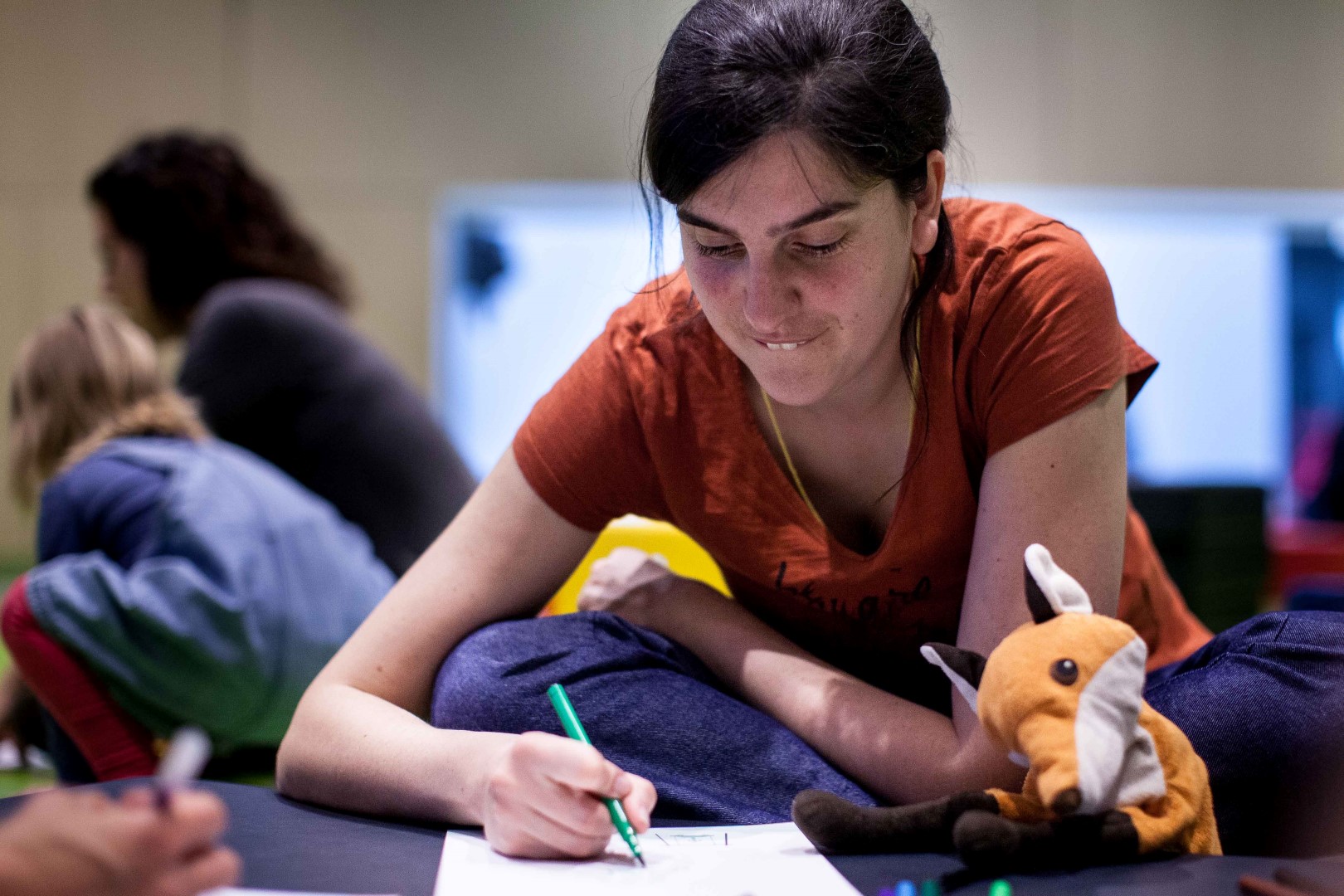[et_pb_section admin_label=”section”][et_pb_row admin_label=”row”][et_pb_column type=”4_4″][et_pb_text admin_label=”Text” background_layout=”light” text_orientation=”left” use_border_color=”off” border_color=”#ffffff” border_style=”solid”]
“What are you working on? Is it any fun?” I hadn’t been working that long at my current work place, when the CIO (Chief Innovation Officer) asked me that.
And I replied: “I have fun working here, but I really don’t like the particular assignment I have now”.
This short dialogue raised a lot of questions in my head, because it did not seem strange that my CIO asked me that question and at the same time I took it for granted that I could answer the way I did. But would I get that question and would I be able to answer in that way everywhere? Is it supposed to be FUN to work? If I had FUN would I be doing my work seriously enough? Would I be concentrated while having FUN? Would I be ambitious enough if I said “YES, I am having FUN!”?
[/et_pb_text][et_pb_image admin_label=”Image” src=”http://www.counterplay.org/wp-content/uploads/2016/08/DSCF1727-Large.jpg” show_in_lightbox=”off” url_new_window=”off” use_overlay=”off” animation=”left” sticky=”off” align=”left” force_fullwidth=”off” always_center_on_mobile=”on” use_border_color=”off” border_color=”#ffffff” border_style=”solid”] [/et_pb_image][et_pb_text admin_label=”Text” background_layout=”light” text_orientation=”left” use_border_color=”off” border_color=”#ffffff” border_style=”solid”]
Being where I was, being who I am and knowing my CIO the way I did, I knew for sure that I could answer: “Yes, I am having fun!” and “I hate my current work assignment!”. We also both knew that I was stuck with the assignment and I had to solve it the best way possible. I was not after being pitied or being taken off the assignment. This was just a statement of status quo. And for my CIO it was important that I had fun on an overall level – not necessarily with the specific assignment.
Having fun at work is not the same thing as always having the fun assignments. In all workplaces there are boring, problematic, idiotic, difficult assignments and they have to be dealt with. But if the workplace signals that it is okay to have fun, to laugh, to connect with your colleagues it is actually more fun to do even the shitty assignments.
But back to the questions I just rose. No, it would not be possible to have this small dialogue in every workplace. Actually I will argue that it is far too rare to find workplaces where this dialogue could take place and I see it as a valuable goal to make this type of dialogue possible in more workplaces. There is a number of reasons why that should be a goal and as I see it the most important reason is that it creates trust and hence more work joy.
[/et_pb_text][et_pb_image admin_label=”Image” src=”http://www.counterplay.org/wp-content/uploads/2016/05/IMG_2518-Medium.jpg” show_in_lightbox=”off” url_new_window=”off” use_overlay=”off” animation=”left” sticky=”off” align=”left” force_fullwidth=”off” always_center_on_mobile=”on” use_border_color=”off” border_color=”#ffffff” border_style=”solid”] [/et_pb_image][et_pb_text admin_label=”Text” background_layout=”light” text_orientation=”left” use_border_color=”off” border_color=”#ffffff” border_style=”solid”]
Trust is at the core of this small conversation, because my CIO trusts that I can do my work AND have fun at the same time. With his question he clearly states that having fun and working are not two opposites and by asking me my CIO makes sure to tell me that he is interested in my wellbeing and that it is important to have fun while working. He actually gives me a responsibility to make sure that I have fun in mind while being at work.
Another thing that I want to connect to this dialogue and the themes “fun” and “trust” is playfulness. Playfulness is a phenomenon with a lot of facets. E.g. it is about being able to play in the organisation and have a playful approach to the workplace, the assignments and continuous organisational changes can make it more FUN to work and can create more trust between people. Playfulness in organisations is about trying, daring and giving space for people, new ideas, weird inputs. It is about taking on new roles and having a primarily yes-instead-of-no approach.
Fun is one of the facets in playfulness and the ability to play. You simply have more fun if you are able to play and have a playful approach to your work and your life.
[/et_pb_text][et_pb_image admin_label=”Image” src=”http://www.counterplay.org/wp-content/uploads/2016/08/IMG_1016-Medium.jpg” show_in_lightbox=”off” url_new_window=”off” use_overlay=”off” animation=”left” sticky=”off” align=”left” force_fullwidth=”off” always_center_on_mobile=”on” use_border_color=”off” border_color=”#ffffff” border_style=”solid”] [/et_pb_image][et_pb_text admin_label=”Text” background_layout=”light” text_orientation=”left” use_border_color=”off” border_color=”#ffffff” border_style=”solid”]
A playful organisation is also tightly connected to the issue of trust. Playing and having a playful organisation create trust in the organisation, because people connect in ways they would not normally do in a professional situation and because it in an organisation where experimentation is profound is okay to try, retry and fail. To be able to play employees and management however need to have a fundamental feeling of trust and a basic understanding that it is okay to play. This means that you can’t create a playful organisation without a basic feeling of trust to start with.
[/et_pb_text][et_pb_image admin_label=”Image” src=”http://www.counterplay.org/wp-content/uploads/2016/06/IMG_1510-Medium.jpg” show_in_lightbox=”off” url_new_window=”off” use_overlay=”off” animation=”left” sticky=”off” align=”left” force_fullwidth=”off” always_center_on_mobile=”on” use_border_color=”off” border_color=”#ffffff” border_style=”solid”] [/et_pb_image][et_pb_text admin_label=”Text” background_layout=”light” text_orientation=”left” use_border_color=”off” border_color=”#ffffff” border_style=”solid”]
This means that becoming a playful organisation is not just to make some trendy “add on” to the organisation. In order to be and become a playfulness organisation playfulness needs to be taken seriously, it is a fundamental part of the organisation and has to do with atmosphere, relations and connections. Both management and employees need to be involved in creating a playful organisation – playing, trusting and having fun go both ways. The management needs to set the frame, give the space and trust the employees to perform, and the employees need to join in, take responsibility and open the mind for playing, having fun and trusting at work.
When was the last time you considered if you have fun when you work or if there is enough trust at your workplace to play and have fun?
The beautiful pictures are taken by Benjamin Pomerleau at CounterPlay Festival 2016.
[/et_pb_text][/et_pb_column][/et_pb_row][/et_pb_section]

Leave a Reply